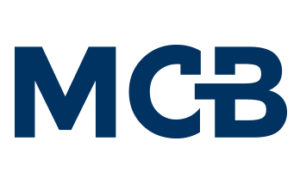
 He missed the intense companionship at Defense. Working together in a small group, sharing a lot of love and suffering, not giving up and really giving up everything for each other. Patrick Wils was a professional soldier, sergeant logistics, from 1993 to 2000, before moving to the civil society at MCB. Five years after his goodbyes, he caught sight of the role of reservists from the US President Bush’s visit to the Netherlands. That would be a perfect hobby: that sense from Defense back again. Patrick wanted to start at the bottom, as a soldier. But no, too highly educated. He became sergeant-major and after that he became platoon commander.
He missed the intense companionship at Defense. Working together in a small group, sharing a lot of love and suffering, not giving up and really giving up everything for each other. Patrick Wils was a professional soldier, sergeant logistics, from 1993 to 2000, before moving to the civil society at MCB. Five years after his goodbyes, he caught sight of the role of reservists from the US President Bush’s visit to the Netherlands. That would be a perfect hobby: that sense from Defense back again. Patrick wanted to start at the bottom, as a soldier. But no, too highly educated. He became sergeant-major and after that he became platoon commander.
Patrick immediately waves emerging images of Dad’s Army, the English TV series about a bunch of ‘clucking’ old-timers, away. “As reservists, we meet the same requirements as professional soldiers; for example, we must also be able to handle a weapon. We only have a zero-hour contract. Our commitment is voluntary, but not without obligation. Even though you can say ‘no’ occasionally, you have to be available in principle, and can be called within 72 hours. We continuously practice when we are called for security and security assignments. For example at critical events, such as the nuclear summit in The Hague and Prinsjesdag. At a high threat level, we can also be called upon to monitor nuclear power plants and hydropower plants. You can think of help in case of flooding, checking trucks for refugees and so on. We also have ceremonial performances at commemorations and inaugurations.”
Patrick is responsible for all incoming materials at MCB as team leader inbound planning. At the 30th National Reserve Battalion Corps, where he spends about 400 hours per year, his responsibility lies with logistics and the training of the reservists. Can he apply what he has learned at Defense in his work?
“Hell yes. I can stand in someone else his shoe well and encourage them to take initiatives and use their qualities. That’s how they develop. That is really something of Defense: do not command people around, but use their knowledge and the knowledge of the group. At the reservists we have plumbers, accountants, lawyers, nurses et cetera. By completing their tricks, approach and ways of thinking, we complete assignments. That way you get a return and that motivates enormously.”
Taking de-escalating action is also something that Patrick picked up at Defense. That is also in his attitude as a manager at MCB. “By talking and arguing, convince others and keep situations calm. You learn that at Defense. As a reservist you can only use your weapon as a last resort and never in an attacking way, only in self-defense.”
And when arguing no longer helps and a situation gets out of hand? “Then I can quickly transfer to a directive approach. Go, get away now, this is how it is going to happen. But those are exceptions.”
Should MCB have a lot of people with experience as a reservist or professional soldier? “I’m convinced of that. Then you bring in people who are disciplined and persistent, motivated and stress resistant. People who bring peace in difficult situations, are a team player and have knowledge of people. But they also make good use of the available knowledge and learned all sorts of practical things. I think that are excellent candidates.”
